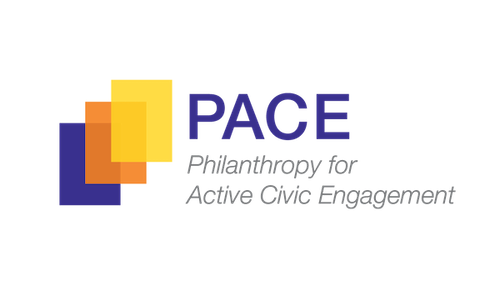A Letter from PACE CEO, Shannon Green: Thoughts and Resources on Elections Executive Order
March 27, 2025
Dear Members,
If you are anything like me, your inbox is full of messages around Tuesday’s Executive Order on Preserving and Protecting the Integrity of American Elections. To help make sense of this latest development, I wanted to share a few personal reflections, as well as the most informative analyses and statements I have seen pertaining to the EO.
At the outset, I think it is important to underscore that democracy is greater than elections. Yet, democracy does not exist without free and fair elections. Elections also matter because they are one of two primary ways to reverse democratic backsliding and autocratization. As such, any action that affects the rules that govern elections, independence of election authorities, and/or effective administration of elections should be taken seriously.
There are several aspects of this EO I find problematic:
- 1. It accelerates the aggrandizement of executive power. By claiming authorities given to States in our Constitution to determine the “times, places and manner” of how elections are run, directing the independent, bipartisan U.S. Election Assistance Commission to take certain actions, and assigning unprecedented roles for federal departments and agencies (including DOGE), this EO seeks to disrupt the balance of power between the federal government and the states, and between the executive and legislative branches.
- 2. It puts election integrity and security at risk. Our decentralized electoral system is highly complicated and heterogeneous, which has its downsides. However, one of the virtues of such a structurally complex system is that large-scale tampering is virtually impossible. Any attempt to centralize the administration of elections, therefore, reduces the security of elections and heightens the risk of manipulation and interference by state and non-state actors.
3. It deepens chaos and uncertainty for states and their ability to run clean elections. EOs do not carry the permanence of law, which means that they are likely to last only as long as the incumbent president wishes. This EO envisions sweeping changes to the electoral landscape and rules of the game – changes that can be easily reversed by future administrations. For electoral reforms to stick, we need carefully considered, bipartisan, evidence-based legislation. As R Street notes in their statement (below), “passing legislation through Congress may be slow, inefficient, and even ineffective, but the resulting statutes are durable and reflect input from stakeholders across the country.”
4. It is likely to disenfranchise eligible voters. The EO requires documentary proof of U.S. citizenship for the federal voter registration form and introduces new requirements for military and overseas voters. It also calls on DOGE and the Department of Homeland Security to review voter registration files. The net effect of these provisions is that many eligible voters could be hindered from voting, sensitive voter information may be disclosed, and costly litigation would be necessary to restore voting rights.
Though these are well-founded concerns, it is important to keep in mind that many of the EO provisions will never be implemented. President Trump’s authority to make these changes is highly contested, and there are already several legal challenges filed, including by the Brennan Center for Justice, the American Civil Liberties Union, and the League of Women Voters.
In addition, there are lots of efforts underway – many of which are funded by our members – to enhance the integrity of and trust in elections. These include immediate litigation to challenge parts of this EO and other unlawful orders; support for structural reforms; identification and cultivation of elected officials who are willing to work across party lines; initiatives to protect civic space, expand civic education, and boost civic participation; efforts to increase the quality of and access to factual information; and networking, solidarity, and protection of election administrators and volunteers. In other words, there are a multitude of ways for funders to advance free and fair elections, beyond proximate “elections work.”
Finally, funders can use their voice to push back on problematic components of the EO and/or call for free, fair, inclusive, participatory, and independent elections. I have linked underneath to proposed talking points from non-partisan, election-focused organizations.
For more, please see the resources posted below, and as always, I am here to answer your questions, bounce ideas off of, or just commiserate.
In Partnership,
Shannon
Analyses
Statements
- All Voting is Local
- The Chamberlain Network
- Vet Voice Foundation
- Institute for Responsive Government
- Voting Rights Lab
Messaging
MAILING ADDRESS
611 Pennsylvania Ave SE, #372
Washington, DC 20003
